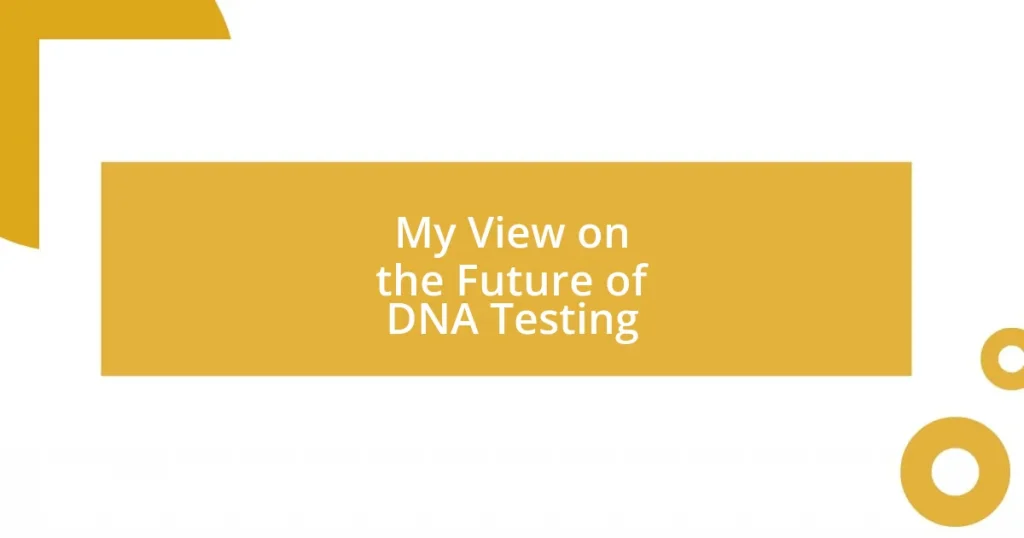Key takeaways:
- DNA testing has become widely accessible, impacting both ancestry exploration and health insights.
- Advancements like next-generation sequencing, CRISPR technology, and AI are transforming genetic analysis and raising ethical questions.
- Ethical concerns include data security, discrimination risks, and the psychological impact on individuals discovering genetic predispositions.
- Future trends point towards personalized medicine and evolving forensic DNA analysis, emphasizing the need for balance between technological advancement and ethical considerations.
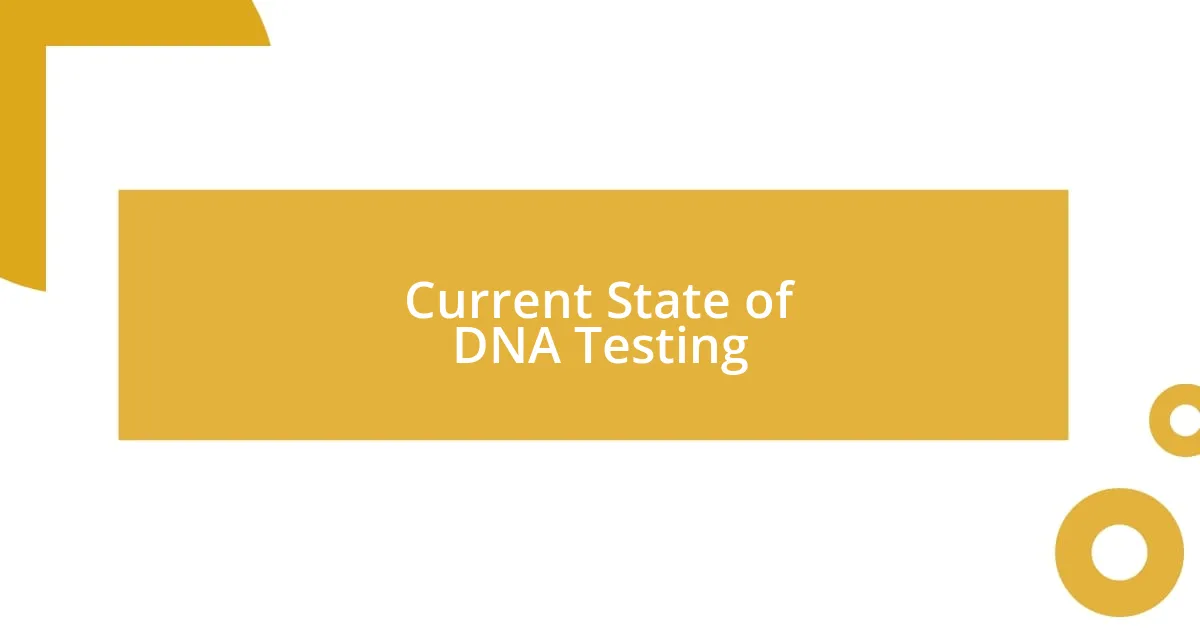
Current State of DNA Testing
The current landscape of DNA testing is truly fascinating. As I scroll through the various services available, I can’t help but marvel at how accessible these tests now are. Just a few years ago, this technology felt almost futuristic; now, it’s something anyone can consider in their living rooms.
I remember the first time I took a DNA test. The anticipation was palpable! Would I uncover something surprising about my ancestry? The results illuminated parts of my heritage I had never thought to explore, sparking a passion for genealogy that persists today. Isn’t it intriguing how a simple test can open doors to family stories we never knew existed?
Moreover, DNA testing has evolved beyond ancestry. It now plays a crucial role in health and wellness. Reports can reveal genetic predispositions to certain conditions, letting individuals make informed lifestyle choices. But this also raises important questions: How much do we want to know about our genetic future? The emotional weight of that knowledge often weighs heavily on my mind.
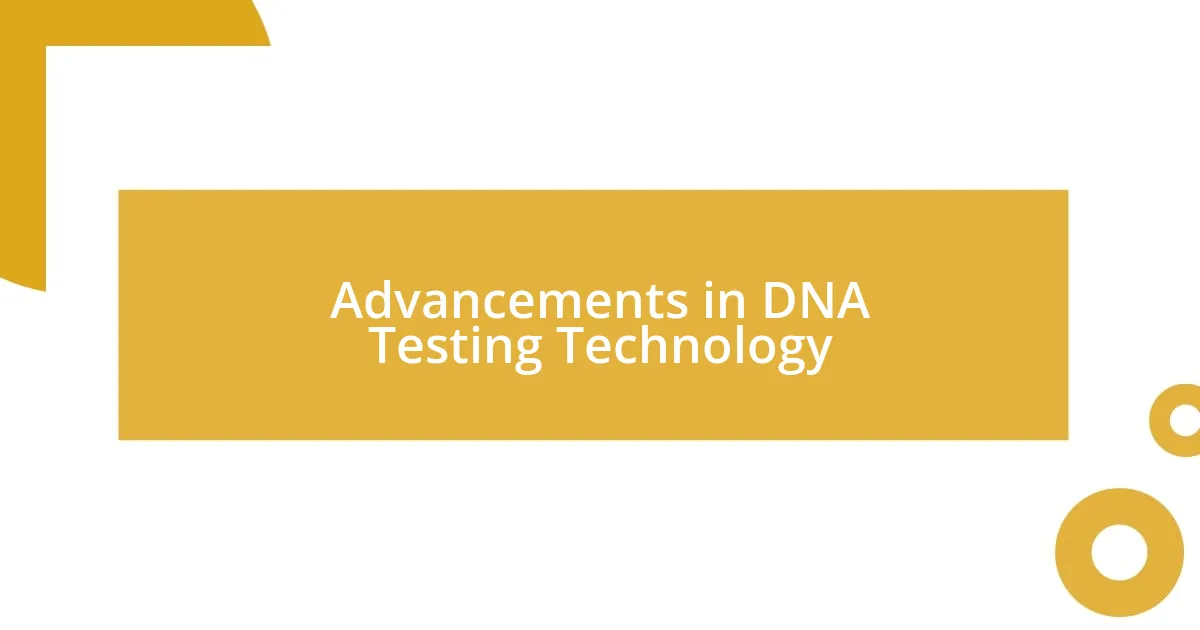
Advancements in DNA Testing Technology
Advancements in DNA testing technology have come a long way, especially with the introduction of next-generation sequencing. This method allows for faster and more accurate sequencing of genetic material, providing insights into not just ancestry but also health risks in a way that feels almost like a personal revelation. When I first heard about this technological leap, I couldn’t help but think about how it might alter the very fabric of our understanding of genetics.
Moreover, advancements in CRISPR technology have paved the way for potential therapeutic applications in DNA testing. Imagine being able to not just know your genetic predispositions but also have the possibility to modify risk factors actively. I felt a thrill when reading about a recent study where researchers successfully altered genes related to hereditary diseases. This not just highlights the incredible advances we’re making but also touches on the ethical implications of playing god with our genes.
Finally, the integration of artificial intelligence (AI) in DNA analysis is revolutionizing how we interpret the data. AI algorithms can now identify patterns that were once overlooked by human analysis, making it easier to detect rare genetic conditions. I find myself reminiscing about my own testing experience and wondering how different it would be if AI had played a role. Would I have discovered something I missed in my report? The thought is both exciting and daunting as we move further into this new frontier.
| Advancement | Description |
|---|---|
| Next-Generation Sequencing | Faster and more precise genetic analysis. |
| CRISPR Technology | Potential to modify genes associated with diseases. |
| AI in DNA Analysis | Enhanced pattern recognition for rare conditions. |
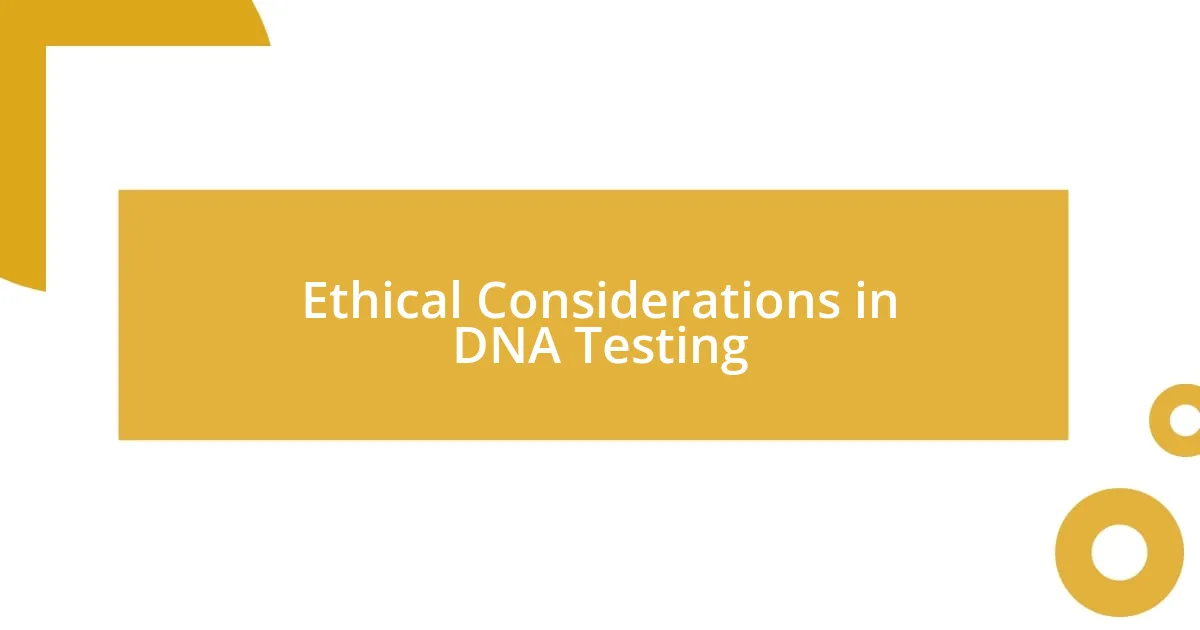
Ethical Considerations in DNA Testing
Ethical considerations in DNA testing invoke powerful emotions and provoke thoughtful discussion. The potential for misuse of genetic information often looms large in my mind. I remember once reading about a person who, after taking a DNA test, discovered information that led to discrimination from insurance companies. It struck me how a seemingly innocuous test could ripple out and affect someone’s life in such profound ways. We need to ask ourselves: How can we ensure that personal genetic information remains private and protected?
- Informed Consent: Are individuals fully aware of what they’re agreeing to when they take these tests?
- Data Security: How secure is the information once it’s collected?
- Discrimination Risks: Can genetic insights lead to unjust treatment in employment or healthcare?
- Psychological Impact: What are the emotional consequences of discovering predispositions to certain conditions?
- Family Dynamics: How might revelations impact relationships with family members who may not want that information shared?
As we delve deeper into DNA testing, I find it crucial to foster an ongoing dialogue about its ethical implications. Each story shared adds layers to the conversation, making us reflect on our choices and their effects on our lives and society as a whole.
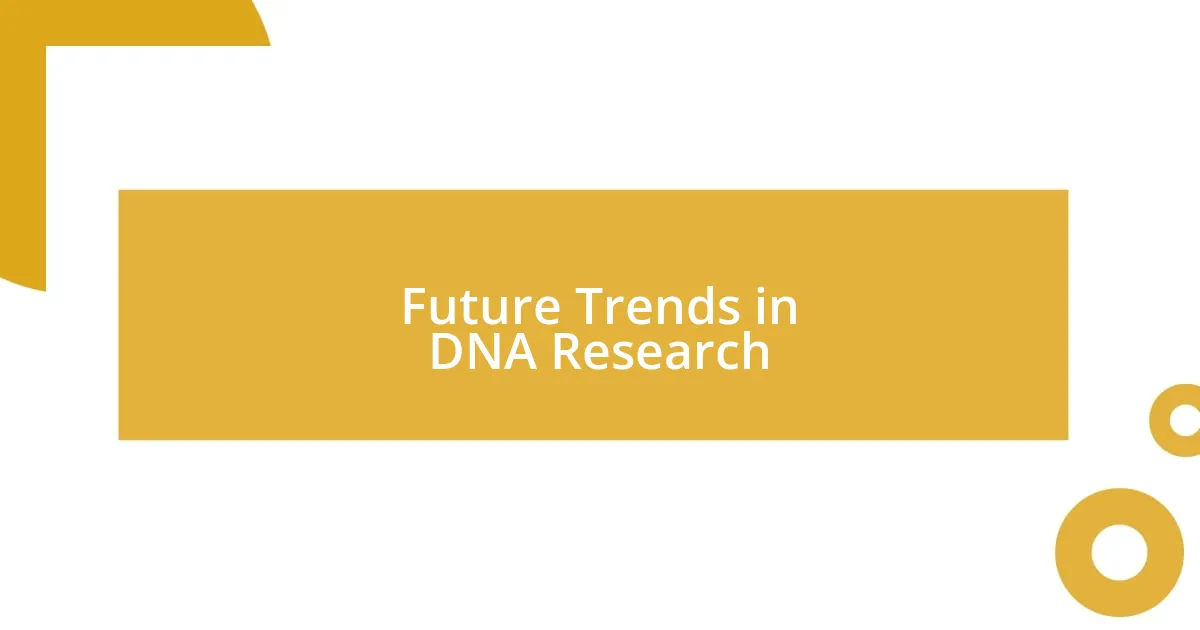
Future Trends in DNA Research
Emerging trends in DNA research are hinting at groundbreaking possibilities, especially with advances in personalized medicine. I’m particularly fascinated by how genetic information could tailor treatments specific to an individual’s genetic makeup. You can almost envision a future where, instead of standard treatment protocols, physicians prescribe medication based on your DNA profile alone. Doesn’t that sound like something out of a sci-fi novel?
As researchers delve deeper into epigenetics — the study of how environment and lifestyle can alter gene expression — we may soon unlock incredible insights into how our habits and surroundings shape our health at a genetic level. I remember a discussion I had with a friend about how our diets might influence our genes, which led us to rethink our choices altogether. It’s not just about what we’re born with anymore; it’s about what we can change.
The field of forensic DNA analysis is also likely to evolve significantly. Imagine the day when DNA can be used to solve crimes almost instantaneously, using cloud-based databases and real-time analysis. I often think back to some high-profile cases where DNA played a crucial role in exonerating the innocent or capturing fugitives. It raises a question: How can we balance the speed of technology with the ethics of its application? As much as I’m excited about these advancements, there’s a part of me that wonders about the implications for privacy and justice.










